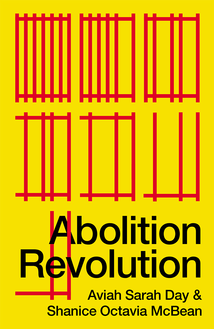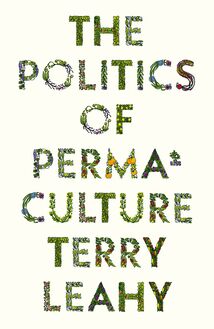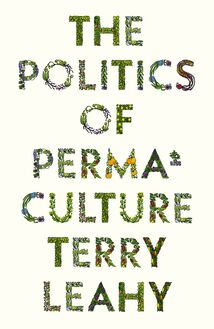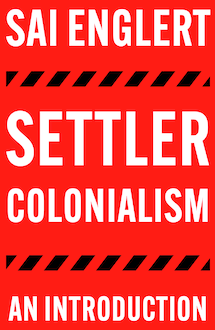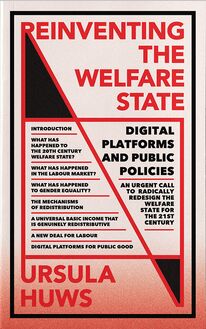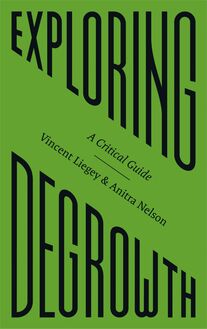Exploring Degrowth , livre ebook
105
pages
English
Ebooks
2020
Vous pourrez modifier la taille du texte de cet ouvrage
Obtenez un accès à la bibliothèque pour le consulter en ligne En savoir plus
Découvre YouScribe en t'inscrivant gratuitement
Découvre YouScribe en t'inscrivant gratuitement
105
pages
English
Ebooks
2020
Vous pourrez modifier la taille du texte de cet ouvrage
Obtenez un accès à la bibliothèque pour le consulter en ligne En savoir plus
Publié par
Date de parution
20 août 2020
Nombre de lectures
0
EAN13
9781786807601
Langue
English
A sense of urgency pervades global environmentalism, and the degrowth movement is bursting into the mainstream. As climate catastrophe looms closer, people are eager to learn what degrowth is about, and whether we can save the planet by changing how we live. This book is an introduction to the movement.
As politicians and corporations obsess over growth objectives, the degrowth movement demands that we must slow down the economy by transforming our economies, our politics and our cultures to live within the Earth's limits.
This book navigates the practice and strategies of the movement, looking at its strengths and weaknesses. Covering horizontal democracy, local economies and the reduction of work, it shows us why degrowth is a compelling and realistic project.
List of Figures and Boxes
List of Abbreviations and Symbols
Glossary
Series Preface
Foreword by Jason Hickel
Preface
Acknowledgements
1. Introduction: Exploring ‘Degrowth’
2. Decolonising Our Growth Imaginaries
3. Degrowth in Practice
4. Political Strategies for Degrowth
5. The Degrowth Project: A Work in Progress
Postface: ‘Now Is the Time of Monsters’
Appendix 1: A Platform for Degrowth
Appendix 2: The Content of the Unconditional Autonomy Allowance
Appendix 3: Implementing the Unconditional Autonomy Allowance: Transitionary Steps
Notes
Selected Further Reading and Links
Index
Publié par
Date de parution
20 août 2020
Nombre de lectures
0
EAN13
9781786807601
Langue
English
Exploring Degrowth
FireWorks
Series editors:
Gargi Bhattacharyya, Professor of Sociology, University of East London
Anitra Nelson, Associate Professor, Honorary Principal Fellow, Melbourne Sustainable Society Institute, University of Melbourne
Wilf Sullivan, Race Equality Office, Trade Union Congress
Also available
Reinventing the Welfare State: Digital Platforms and Public Policies Ursula Huws
Pandemic Solidarity: Mutual Aid During the Covid-19 Crisis Edited by Marina Sitrin, Colectiva Sembrar
Exploring Degrowth A Critical Guide
Vincent Liegey and Anitra Nelson
Foreword by Jason Hickel
First published 2020 by Pluto Press
345 Archway Road, London N6 5AA
www.plutobooks.com
Copyright Vincent Liegey and Anitra Nelson 2020
Every effort has been made to trace copyright holders and to obtain their permission for the use of copyright material in this book.
The publisher apologises for any errors or omissions in this respect and would be grateful if notified of any corrections that should be incorporated in future reprints or editions.
The right of Vincent Liegey and Anitra Nelson to be identified as the authors of this work has been asserted in accordance with the Copyright, Designs and Patents Act 1988.
British Library Cataloguing in Publication Data
A catalogue record for this book is available from the British Library
ISBN 978 0 7453 4201 6 Hardback
ISBN 978 0 7453 4202 3 Paperback
ISBN 978 1 7868 0759 5 PDF eBook
ISBN 978 1 7868 0761 8 Kindle eBook
ISBN 978 1 7868 0760 1 EPUB eBook
Typeset by Stanford DTP Services, Northampton, England
Contents
List of Figures and Boxes
List of Abbreviations and Symbols
Glossary
Series Preface
Foreword by Jason Hickel
Preface
Acknowledgements
1 Introduction: Exploring Degrowth
2 Decolonising Our Growth Imaginaries
3 Degrowth in Practice
4 Political Strategies for Degrowth
5 The Degrowth Project: A Work in Progress
Postface: Now Is the Time of Monsters
Appendix 1: A Platform for Degrowth
Appendix 2: The Content of the Unconditional Autonomy Allowance
Appendix 3: Implementing the Unconditional Autonomy Allowance: Transitionary Steps
Notes
Selected Further Reading and Links
Index
List of Figures and Boxes
FIGURES
1.1 Two imaginaries
2.1 Energy descent
2.2 Brands aren t your friends
3.1 Seven types of ordinary happiness
3.2 Fifth International Degrowth Conference banner
4.1 Activist Patrick Jones at a climate change rally, Melbourne 2019
4.2 Advertising
4.3 Pete Seeger - If it can t be reduced
5.1 Fuck work
5.2 AdHack Manifesto
BOXES
2.1 The tourist and the fisherman
5.1 A lifestyle menu
5.2 Degrowth formation: Cargonomia
List of Abbreviations and Symbols
aka
also known as
CADTM
Committee for the Abolition of Illegitimate Debt
DIO
do it ourselves
DIY
do it yourself
EU
European Union
FCAI
Federal Chamber of Automotive Industries
GDP
gross domestic product
GPI
genuine progress indicator
IPBES
Intergovernmental Science-Policy Platform on Biodiversity and Ecosystem Services
IEA
International Energy Agency
kWh
kilowatts per hour
L
litres
LETS
labour/local exchange trading system/s
m
metre/s
MAI (in French, RMA)
maximum acceptable income ( revenu maximum autoris )
NIMBY
not in my back yard
PPLD
Collectif Nous Sommes Parti.e.s Pour La D croissance
R D
Research and Degrowth
UAA
unconditional autonomy allowance
UFO
unidentified flying object
UK
United Kingdom
US
United States (of America)
ZAD
Zone D fendre
Glossary
Autonomy A central political concept for the degrowth movement, mainly influenced by Cornelius Castoriadis work, where agency and subsidiarity are central. Refers to the will, capacity and capability to self-define, to decide and act responsibly within socio-political limits, whether as an individual or a collective. Its opposite, heteronomy, is effective submission, or giving power over, to an external authority.
Commons and commoning Refer to co-created, co-governed and co-accessed cultural and natural resources and associated activities. The key questions for degrowth, in particular for the degrowth project, focus on creating and experimenting with new types of co-governance which are significantly more equal, transparent, democratic and sustainable than those driven by the logic of the market.
Convivial A central concept for degrowth, coined and developed by Ivan Illich. As a practice, it means a cooperative, mutual, sociable and sharing approach. As a characteristic of societies, it means that citizens (not experts or technocrats) directly control technologies and institutions, so that technologies are selected to serve the common interest and do not breach the counter-productivity threshold.
Counter-productivity threshold The point at which the human time and effort, and material and energy costs, of a technology surpass the saving made by its use in a comparison with similar techniques or technologies used to achieve the same result.
Decolonisation of the imaginary A central concept and objective of degrowth, first, as a provocative slogan and, second, as a multidimensional matrix of thoughts and theories. Refers to processes involving the deconstruction of concepts and beliefs associated with growthism in order to liberate and open practical pathways to sustainable and desirable lifestyles and models of society.
Ecofeminism Ecological feminist perspectives exploring and advocating emancipation from Western patriarchal domination of both women and ecosystems. A key principle of degrowth applied by acknowledging needs for gender equality, engagement of all in care of people and nature, thus deconstructing gender identities and roles associated with domination and exploitation.
Ecological economics A transdisciplinary field of studies addressing contemporary challenges by focusing on governance of economic activities to achieve human well-being, ecological sustainability and social justice (recently aka social ecological economics ).
Frugal abundance The only abundance for the degrowth movement is a frugal one. Western productivist societies, driving to overcome limits, are characterised by over-abundance . Philosophically abundance, like well-being, is subjective and, as a desire, culturally transferable. The degrowth movement advocates for practices, philosophies and livelihoods that respect limits but are rich and full in meaning. Also referred to as happy sobriety .
Glocal The application of universal (global) principles locally.
Low-tech approach A provocation to rethink human relationships with technologies - as in Ivan Illich s tools for conviviality and Jacques Ellul s technician totalitarianism - this means inventing, developing and sharing the most simple, local, easy-to-implement and easy-to-use tools or technologies to satisfy our basic needs. Includes questions around how to design tools in sustainable, open-source, shareable and autonomous ways.
Municipalism A movement advocating direct democracy and subsidiarity, power at the local (municipal) level, often at the expense of - or in a confederated form as a substitute for - the state. Murray Bookchin advocated a libertarian form. Municipalism is practised by Kurdish communities in the liberated territory of Rojava (northern Syria) and the highland Zapatista communities of Chiapas (Mexico). Influential in many contemporary movements, such as commoning and degrowth.
Open relocalisation Localisation of production and distribution deemed necessary for environmental, energy-related and social reasons. Means re-appropriating knowledge and skills for low-tech and ethical local decision-making, that is, direct democracy. In contrast to reactionary protectionism open relocalisation calls for reversing globalisation in transparent, all-inclusive ways based on solidarity with the aim of diversifying communities and environments to enrich life.
Planned obsolescence A common and wasteful characteristic of capitalist production whereby new models of standard products embody features that make older versions less useful and/or less attractive, so that although they may still be functional and useful, outdated models are discarded.
Pluriverse and pluriversity Refer to saving, respecting and re-creating diversity in a globalised world without reducing solidarity and exchange but rather offering a way for degrowth to find the right balance between universal rights and risks of Western cultural colonialism.
Post-development Central to degrowth, a strong critique of colonial, culturally imperialistic beliefs associated with the Western model of civilisation imposing development globally with devastating cultural and environment impacts. Constructively, an invitation to acknowledge, learn from and engage with the wisdom, skills and know-how of non-Western cultures, languages and civilisations.
Re-embed the economy Karl Polanyi s approach, highlighted by Serge Latouche, for reversing the socio-economic and cultural centrality of the market, the economism, in productivist societies. Central to the degrowth movement s quest to decolonise the dominant economically rational imaginary, to achieve post-capitalism via decommodification and economic regulations.
Transhumanism A philosophical movement promoting the development and broad accessibility of sophisticated technological enhancements for human minds and bodies.
Series Preface
Addressing urgent questions about how to make a just and sustainable world, the Fireworks series throws a new light on contemporary movements, crises and challenges. Each book is written to extend the popular imagination and unmake dominant framings of key issues.
Launched in 2020, the series offers guides to matters of social equity, justice and environmental sustainability. FireWorks books provide short, accessible and authoritative commentaries that illuminate underground political currents or marginalised voices, and highlight politica
